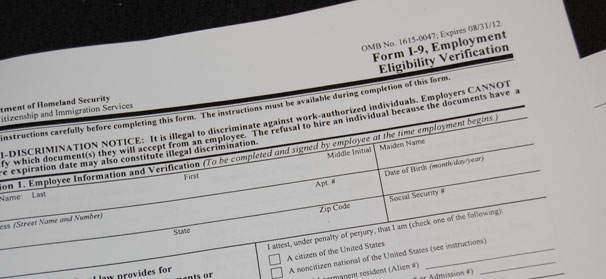

Mar 19, 2012State office can help Michigan farms find labor
Last year marked the first time Michigan farms had difficulty finding enough labor to harvest their crops, said Belen Ledezma, division director for Migrant, Immigrant and Seasonal Worker Services with the state of Michigan.
With job openings in ag abundant, finding the right kind of skilled labor can be difficult. That is where Ledezma’s office comes in, she said in a presentation given at the West Michigan Ag Labor meeting in Grand Rapids, Mich., in February.
Ledezma’s office runs the Agricultural Recruiting Service (ARS) out of Michigan Works!, the job fulfillment office of the Michigan Department of Labor. ARS actively recruits for agriculture and specializes in filling jobs with migrant workers. Having a shortage of workers raised a red flag for Ledezma.
“Last year, we had 18,000 contracts for labor issued,” Ledezma said. “We were only able to fill 13,000. That is a loss of 5,000 contracts, meaning we were unable to fill those positions. We’ve never had an issue filling contracts before.”
Growers who need labor should be aware of the services ARS offers. Notify the office of your labor needs at least eight weeks prior to the time you actually need it, to give them time to recruit for you, she said. Be specific about what you want in a worker, what crops will be worked with and the employment period.
There are some requirements for growers as well, Ledezma said, such as a contract that is binding. Wages must be the highest of the three between the state of Michigan minimum wage, the national minimum wage or the highest prevailing wage in your area for similar work. Piece-rate work and bonuses must also be spelled out in full detail, as well as any deductions. Housing must also be provided at no additional cost and be available to family members. Transportation is not a requirement, unless it is a prevailing trend in your area.
“If all the farms in your area are paying the transportation costs to get labor, then you will be required to as well,” Ledezma said. “If we’re bringing in workers for you from Florida or Texas, you might want to consider offering transportation anyway, as a way to ensure your labor needs are filled.”
There is a reason Ledezma suggests making this offer. With the current climate for immigration reform and several states passing Arizona-style regulations, many migrant workers are unwilling to make major cross-country moves to find work, she said.
“They aren’t willing to risk it, even when they are legal,” she said. “It can be a major hassle, and too much for some to be willing to deal with.”
When Ledezma’s office has sufficient job request orders, it often will set up a job fair in Texas or Florida. Technology can help the process. Web cams or Skype can allow employers to interview potential workers and hire them on the spot, she said.
Ledezma made one point very clear. The ARS office does not fill out I-9 or E-Verify paperwork. Those tasks are strictly the responsibility of the grower after the work is hired. She also said the contracts are binding to the grower only. There is nothing binding the employee, other than a desire to work.
“You have to keep in mind that the workers that you’re going to attract through this type of program – they want to work,” Ledezma said. “If you’ve got good housing and are paying a competitive wage, they will come, stay and work for you.”
By Derrek Sigler, Assistant Editor














